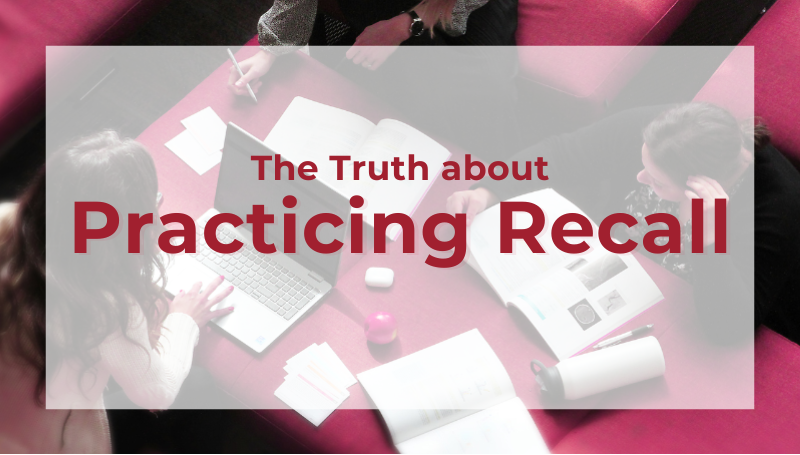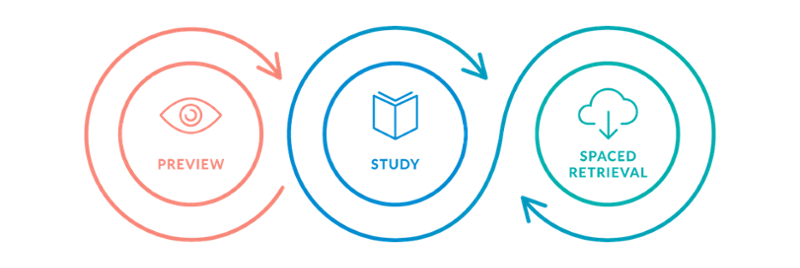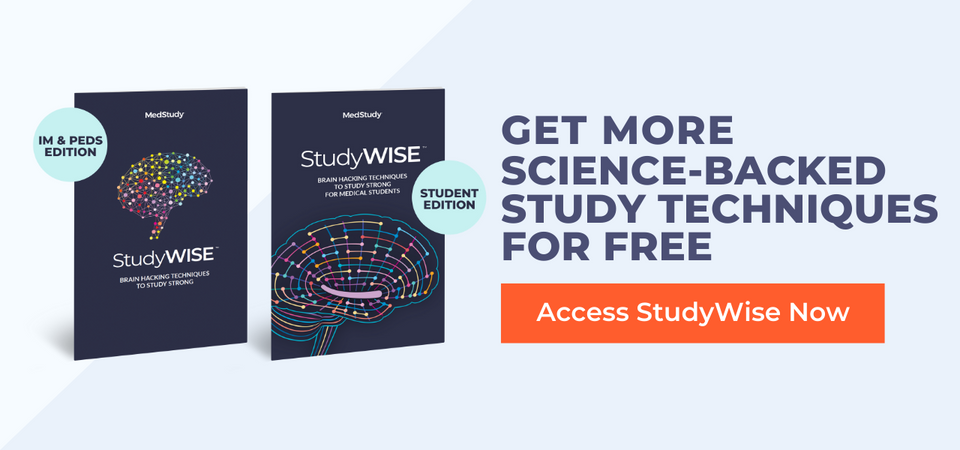How to Get the Most Out of Your Study Sessions

We're all about making learning medicine easier. One of the best ways to do that is to ensure you're learning the right stuff in the right way. This is what it means to StudySTRONG.
In order to study strong, we must set aside much of what we assume about how to study because most of what we’ve been taught doesn’t measure up. The MedStudy Method breaks down common learning practices into myths and truths, and our Learning Truth #1 is all about the importance of practicing recall.
Let's dive into the right way to practice recall—and why it's the key to your success no matter where you are in your medical journey.
Learning Truth #1 - Recall, Recall, Recall
As studies have proven, practicing recall of facts, concepts, and processes is the sole way to convert that information into durable, easily recalled long-term memories. By including structured recall sessions during your daily practice and studies, you can more easily and efficiently retain new information.
Did you know that there is a specific way you must engage with the recall process for it to be effective? You can’t just spend a few seconds trying to recall the information and say, “Nope, don’t remember much” and then jump back into reading about that topic. This will drop you right back into your soft and fuzzy illusion-of-fluency world where you're not really learning anything.
Rather, even if you don’t remember anything at first, strive to dredge up all the information you can that is related to the topic. This is termed “effortful recall,” and the more effort you put into recalling the facts or concepts, the stronger your memory becomes.
Purposefully repeating the recall of previously learned information is called "retrieval practice." This process has been studied extensively, and the best way to practice retrieval is with spaced retrieval. Spaced retrieval is when you practice recalling a topic multiple times—with a progressively longer time between each session. Each session results in memories of that topic that are even more durable and even more easily accessible.
Our recommendation? Spread out the retrieval sessions. After the initial study session, practice recall on the topics in 2 days, 10 days, 6 weeks, and 4 months. Don’t want to keep up with that by yourself? Personal Trainer will remind you when you’re supposed to be working on recall of a topic.
Pro Tip: Recall as much as you possibly can before looking up the answer.
Making retrieval practice a second‑nature part of your studies and clinical work will allow you to continually grow your knowledge base and level of expertise.
So what is the MedStudy Method?
The MedStudy Method locks the material you must know into your long-term memory. It combines the most effective evidence-based learning techniques in an easy-to-apply, three-phase approach to study.
 The 3 steps of the MedStudy Method
The 3 steps of the MedStudy Method
All MedStudy products are built from the ground up with features that work optimally with this method. In particular, Personal Trainer uses it to create personalized study plans for you. That's right: No more calendaring!
Tell me more about these learning myths and truths
Learning Myths
Over the last 50+ years, a tremendous amount of work has been done rigorously testing study techniques to determine which ones result in better learning. This has been empiric testing—testing each method against a control group. So the myths presented here have been confirmed by multiple studies.
We like to highlight these myths because self-correction is an important step in learning. Better learning occurs when the student has an active role and corrects their own errors—rather than simply being told the right answer. Well, let’s take a big step back and see if you can apply this concept to fixing the way you’ve been learning in the first place!
Without further ado, here are 6 commonly used (and taught!) techniques of studying that turn out to be suboptimal and maybe even counterproductive. Reminder: DON'T DO THESE!
.png?width=900&name=StudyWise%20Tips%201%20(900%20%C3%97%20600%20px).png) 👆 What not to do
👆 What not to do
Learning Truths
Learning truths, including Learning Truth 1 listed above, are the techniques that are most useful for effective learning. We categorize these techniques into 2 essential learning truths. Next time, we'll explore Learning Truth 2. Want to read ahead? Open your StudyWise Guide!



